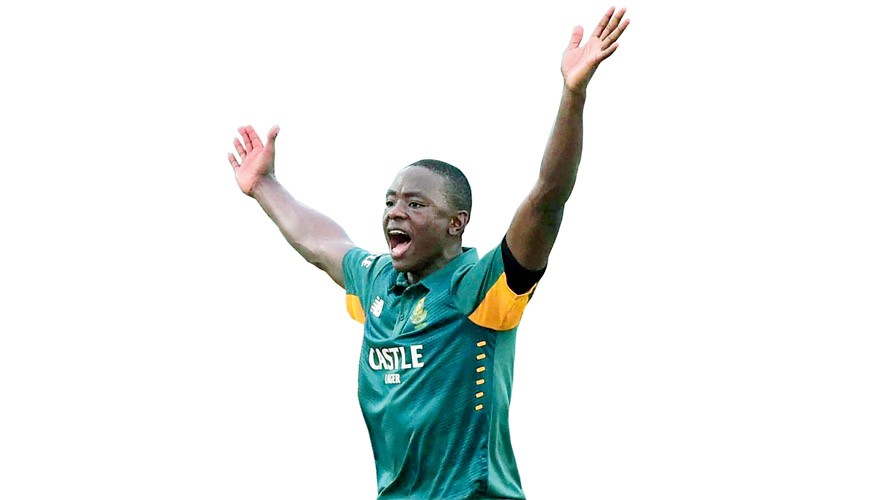

South Africa found a gem by the name of Kagiso Rabada, a 20-year-old who probably had never thought about his success before they came to Centurion in front of another Test giant called England.
He gave his best and got rewarded by six wickets for 32 in second innings, just as good as Hugh Tayfield’s nine for 113 in the same innings of the Fourth Test at Johannesburg against England at Durban in 1956-57.
His overall 13 for 144 was nearly as good as Makhaya Ntini, who took 13 for 132 against the West Indies in Port of Spain in 2004-05. Ntini, at the time in commentators’ box, shouted "come on Rabada, get 13!"
Rabada said Ntini was one of the bowlers he grew up watching and admiring.
Even England skipper Alastair Cook admired his bowling. "The control he has and the ability to swing the ball at pace, and to be able to work out where to bowl at each batsman. He’s bowled really well in these last three games. To get 13 wickets in a Test match at that age, the sky’s the limit for him. He’s got all the attributes that are needed," Cook said.
Rabada’s efforts, along with that of Morne Morkel (3 for 36), helped South Africa skittle England out for a mere 101 in their second innings in the first session of the final day.
South Africa thus recorded a massive 280-run win in the fourth and final Test, after England had won the series with a 2-1 series margin.
The match will be remembered for a number of reasons, especially for the South Africans. Debutant and much talked-about domestic sensation Stephen Cook scored a memorable century on debut. Hashim Amla and Quinton de Kock returned to form triumphantly with centuries, with the former finishing as the leading run-getter in the series.
AB de Villiers recorded his first win as Test skipper, with the Proteas ending their winless streak that stretched to more than a year.
The 11th edition of the ICC Under 19 Cricket World Cup is all set to be staged in Bangladesh from January 27 to February 14 and Pakistan’s young guns have a chance to show their talent there.
Pakistan, the only nation to win back-to-back titles, in 2004 and 2006, will need to survive a tough Group B, which includes Sri Lanka, Afghanistan and Canada, if they are to make it two finals in a row.
"We are confident," said Pakistan captain Gohar Hafeez. "The other teams are good but we will accept the challenge and beat them all."
If both India and Pakistan top their respective groups and also win their quarter-final matches, they will set up a mouth-watering semi-final clash in Mirpur on February 11.
Although India, three-time champions, recorded a five-wicket victory over Pakistan on the final day of the warm-up matches on January 25, I believe our kids have the guts to overpower the best of teams, including Sri Lanka and South Africa.
Pakistan warmed up for the tournament by winning a tri-series against Australia and New Zealand in the United Arab Emirates (UAE) earlier this month, albeit on the basis of run-rate after all three teams secured two wins each in the double-leg event.
South Africa will defend the title under Tony de Zorzi, hoping to repeat their UAE performance where they defeated Pakistan in the final to make up for two runners-up spots in 2002 and 2008.